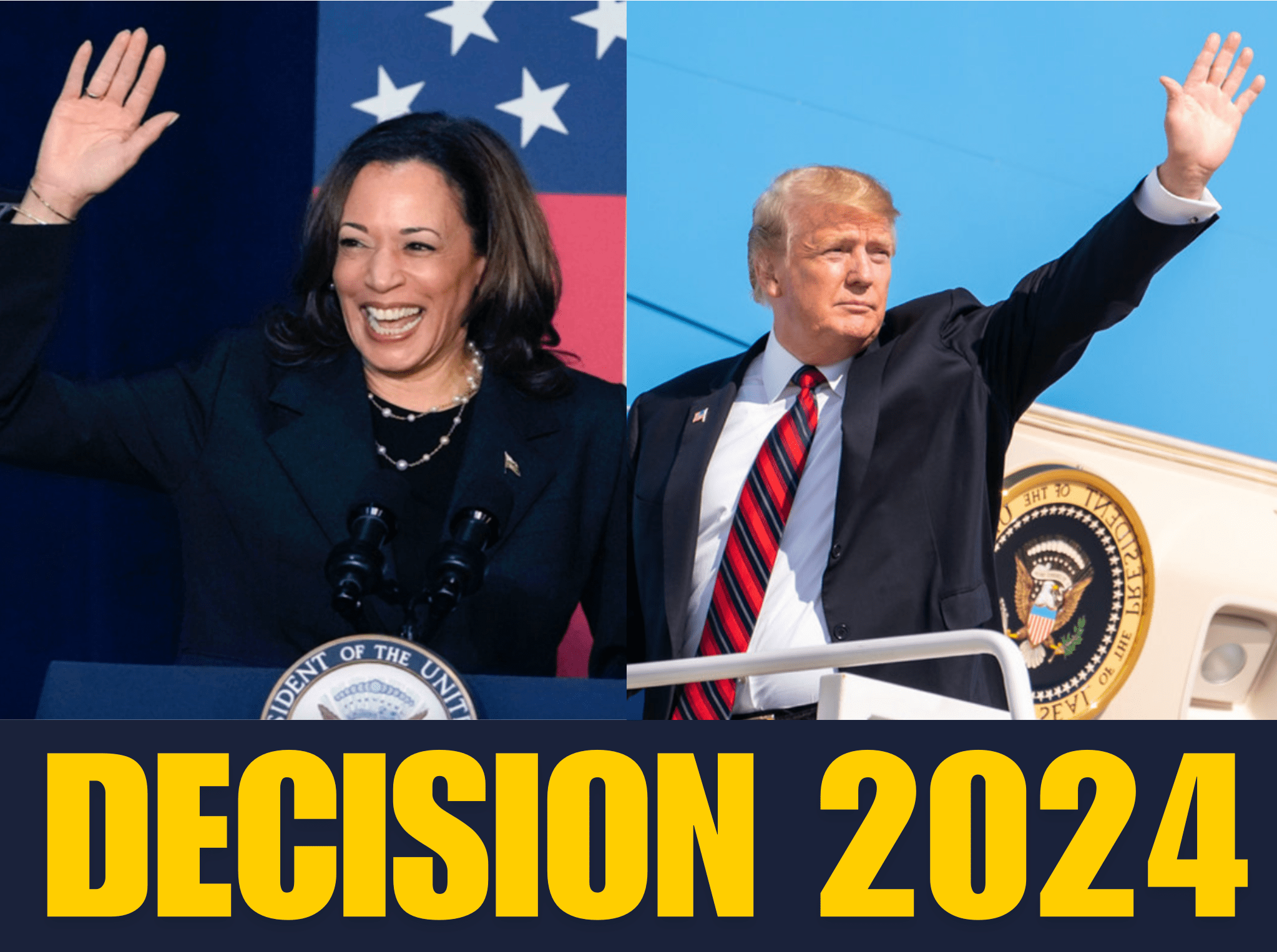Elections are supposed to be about choices — and this Election Day offers a clear one on sustainable transportation.
No, the movement to end car dependency and give Americans the freedom to move on multiple modes hasn't exactly been a front-line campaign issue in the race for the Oval Office. But since the next president will preside over the reauthorization of our core surface transportation programs when the Bipartisan Infrastructure Law expires in 2026, it's worth taking a step back and considering each candidate on the issue.
Harris trumps Trump
As a senator, Kamala Harris spoke about — and legislated on — reducing vehicle miles, ending environmental racism, reducing biased traffic policing, and more:
Streetsblog California's Damien Newton even argued that Harris showed strong climate leadership as far back as her days as the Golden State's Attorney General, when she joined a lawsuit against a controversial plan that would have expanded highways in San Diego while punting biking and walking projects off to the indefinite future.
As Biden's Veep, of course, Harris supported the Bipartisan Infrastructure Law, which was criticized by many sustainable transportation advocates for "providing hundreds of billions for status quo programs that will be used to build new roads and produce ever-increasing emissions for decades to come," Beth Osborne of Transportation for America said at the time.
But some analysts argue that the Biden/Harris administration at least did demonstrably more for walking and biking than the Trump administration, as well as for communities of color — especially when it comes to discretionary grants.
And it should be noted that under Transportation Secretary Pete Buttigieg, the Biden-Harris administration was the first to acknowledge that all road deaths are preventable — and adopt a systemic approach to ending them.
Moreover, some advocates like Saul Levin of the Green New Deal Network argue that the first infrastructure bill House Democrats put forward in 2020 was pretty visionary — before its ambitions were watered down during negotiations with the GOP and centrist Democrats in the Senate. He hopes Harris will revive that earlier approach when the Bipartisan Infrastructure Bill expires in 2026, and calls the candidate "a serious person who understands that at some fundamental level, we need new forms of transportation."
Levin also argued that Harris's pick for her running mate, Tim Walz, could signal her support for even more progressive transportation priorities, considering that he signed what many consider one of the most exciting state infrastructure bills in U.S. history.
Trumped
As President, Donald Trump, meanwhile, failed to pass any kind of infrastructure bill — and the existing discretionary grant programs over which his administration presided heavily favored road expansions in white rural communities.
Wait times for major transit projects also more than doubled during his tenure, as Angie Schmitt reported back in 2019.
President Trump rarely discussed the issue of road safety during his tenure... except to compare the slaughter of 40,000-plus people on our roads every year to the masses who died in the early days of COVID-19, both of which Trump argued we just have to accept in order to "to get our country open."
Add it all up, and advocates like former Streetsblog editor-turned-Transit Center spokesman Ben Fried called Trump appointee Elaine Chao's era "a lost four years" with "no positive legacy."
Chao isn't likely to join any second Trump administration, considering that she resigned in protest after the Jan. 6 riot — but that doesn't mean that the outlook is any better for his next potential Secretary of Transportation, either.
And if the Heritage Foundation's "Project 2025" does indeed end up being the blueprint for a second Trump administration, it could mean even further cuts to transit, an even bigger push towards single-family sprawl, and even more subsidies for the automobile and oil industries.
Throughout the campaign, advocates have been pointing out not just how dangerous these ideas are, but how fundamentally weird they are — and how important it is that we start re-normalizing communities where people can move any way they choose without constant fear of violent death, and without needing to take on a multi-ton depreciating asset they often can't afford.
Much more to accomplish
Of course, some might argue that neither major party has really wrapped its arms around just how corrosive car dependency is to progressive and conservative goals like confronting climate change, strengthening local economies, achieving justice for marginalized communities, and reining in wasteful government spending on highways.
And both are competing to continue letting communities sprawl and sprawl, even on federal land:
But elections are about choices — so make yours. Either way, livable streets activists will have a lot of work to do.






